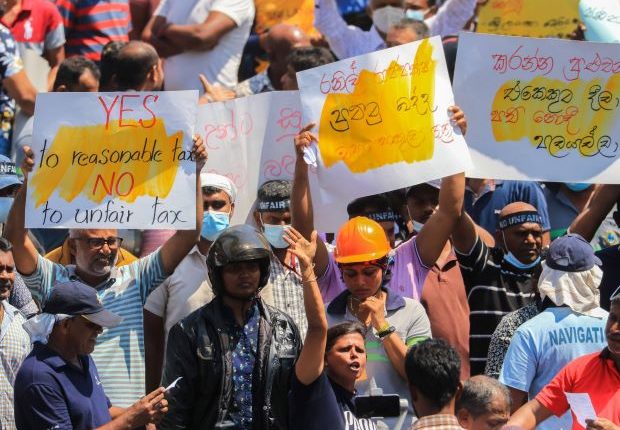Rights, accountability and people’s hopes
By Lionel Bopage
Over the past elections, the people of Sri Lanka have spoken clearly. They placed their trust in the NPP, not out of blind loyalty, but out of desperation for change, for what was popularly called system change. However, that electoral victory did not grant the NPP the licence to act with impunity. Rather, it created a moral and political obligation to deliver on the promise of fairness, opportunity and resilience for all citizens.
I listened to Minister Lal Kantha who, in a moment of rare clarity, reminded us of something often overlooked: regardless of who is in government, the state remains an instrument of power, often of repression. This is not a new observation but a timeless one. The state, in its current form, still carries many colonial vestiges that were designed not to serve the people but to control them.
Despite independence in 1948, many of the repressive laws and structures built to maintain a colonial regime still endure today. They have been repackaged, renamed and expanded but rarely reformed in any meaningful way.
This is not unique to Sri Lanka. Over a century ago, Lenin wrote that the state is not a neutral body; it is, at its core, an apparatus of coercion. He said, “A standing army and police are the chief instruments of state power.” That reality, sadly, still holds.
In Sri Lanka, the mass uprising we call the aragalaya was not a unified or revolutionary movement. It was a coalition of discontent, ranging from reformists to neo-liberals. People wanted change but they didn’t always agree on what that change should look like. That made revolutionary transformation unlikely from the outset.
Today, Sri Lanka finds itself in a deeply interconnected and volatile world. Economically, socially and politically, the global situation is unstable. And as a dependent economy, Sri Lanka is particularly vulnerable. Unless we break out of this dependency – much of it inherited but some of it willingly embraced – we will continue to feel the shocks of global turbulence.
To its credit, the NPP government has taken some positive steps. Inflation is down, wages have risen and the budget is in a better position than before. But we must also be realistic. These are only steps to lay foundations, not destinations. They offer hope but they must be built upon with real structural reform.
We cannot expect to overcome our current crisis without tackling the root causes, which are economic inefficiency, social inequality and flawed governance. Reform must be deliberate, systematic and participatory. But let’s be honest. Transformational change cannot happen in a vacuum. It requires a revolutionary spirit and, most importantly, the active participation of the people.
That is the difference between a participatory democracy and an authoritarian regime. When people are engaged, empowered and given a real say in the decisions that shape their lives, a better society becomes possible.
Yet, despite the hopeful signs, the machinery of repression remains intact. The Prevention of Terrorism Act, the ICCPR Act and the Online Safety Act, all tools of control, inherited from previous regimes, are still active. These laws are designed to silence dissent not to protect democracy.
The danger is clear: unless the government radically reforms these tools of repression, Sri Lanka risks sliding once again into authoritarianism. We have seen it before. We have lived through it. People have both elected autocrats and resisted them. This is not new terrain for us.
But here’s the hope: civil society has always been the difference maker. When we organize, when we speak out and when we demand rights and accountability, we shift the course of history. The fight for democratic rights is never over. And it must continue not just defensively but offensively. We must fight not only to protect rights but to expand them.
What Sri Lanka needs now is not just economic recovery but economic transformation – a more productive economy, stronger regional partnerships, diversified trade and a resilient social safety net. We must reduce dependency and modernise the economy to truly lift people’s living standards.
Your engagement matters. Your voice matters. The government must be guided, not just by party ideologies or economic frameworks, but by the real needs and aspirations of the people.
We also need to recognize that the government is not without its challenges. It suffers from a lack of experienced leadership and a capable public service infrastructure. These are not problems that can be fixed overnight. But they must be acknowledged and addressed with urgency and transparency.
At the same time, the government must clarify its goals, communicate better and focus on what truly matters: policy reform, practical results and protecting people’s rights. The window for excuses is narrowing. People are watching. They are demanding better.
And finally, while this government may not yet have descended into bureaucratic authoritarianism, it is not immune to that danger. The signs are there. The warning lights are flashing. But so too is the opportunity to chart a new course, to build a fairer, more inclusive and more democratic Sri Lanka.
This is a moment for hope, but also for action.
Let our voices serve as reminders, as warnings and as guides. The future remains unwritten but we are all authors of it.
-Lionel Bopage is a former JVP central leader, now based in Australia, working for inter-communal harmony in Sri Lanka and among the Diaspora on a rights-based approach. This article was originally featured on groundviews.org



Comments are closed, but trackbacks and pingbacks are open.